GreenYellow investing in New Wing's rooftop solar power system
The move marks the ongoing expansion of GreenYellow in Vietnam, which will contribute to the country's net-zero emission target by 2050. The rooftop solar power system was installed with a total capacity of 5MWp, located at the New Wing factory in Van Trung Industrial Zone in the northern province of Bac Giang.
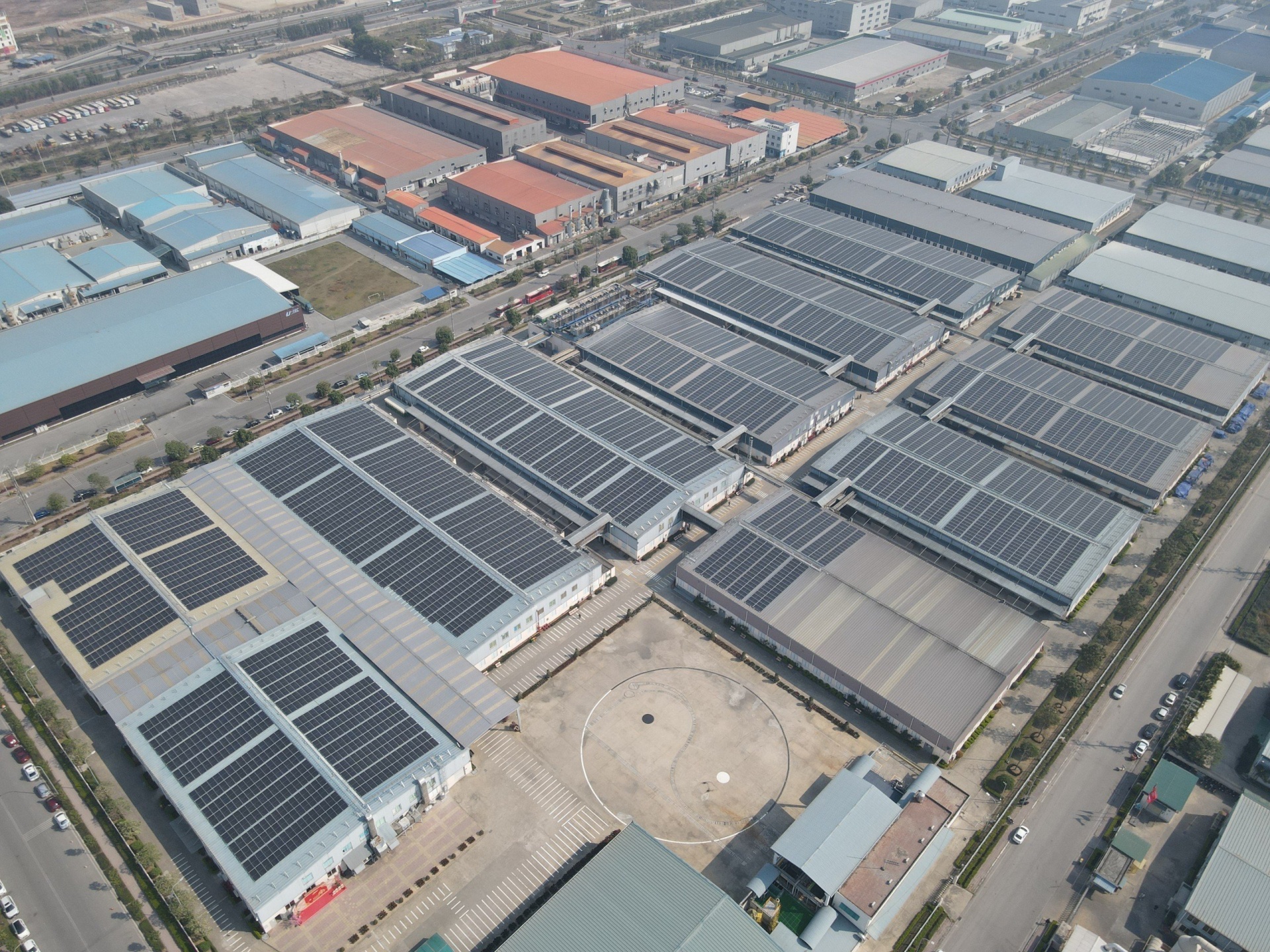 |
The project is expected to produce 5,300MWh of solar energy per year, which will in turn offset about 4,500 metric tonnes of CO2 emissions over a 12-month period.
New Wing, an energy arm of Foxconn Group, a major player in manufacturing semiconductors and other electronic components, has deployed its sustainable development strategy by entering a power purchase agreement with GreenYellow.
| The project marks an important milestone in GreenYellow’s investment in the Vietnamese market, especially in the northern region. |
The French firm will be the sole investor and operator of New Wing’s solar power system over the 20-year period of the contract. The project marks an important milestone in GreenYellow’s investment in the Vietnamese market, especially in the northern region.
This project will also add to GreenYellow's growing solar portfolio in Vietnam. In November 2022, GreenYellow took over a 49.5MWp solar farm from Qair, a French independent renewable energy producer. Sebastien Prioux, CEO of GreenYellow Vietnam and Cambodia, cited a report from the International Energy Agency (IEA) indicating that Vietnam is the second-largest electricity consumer in Southeast Asia.
"Vietnam's ambitious green energy goals now place it in a position to become a regional and global leader and a focal point for renewable energy financiers and investors," said Prioux.
To facilitate the goal, Deputy Prime Minister Tran Hong Ha finally approved the country's Power Development Plan VIII (PDP8) last May.
“With PDP8 approved, the aim now is to ensure energy security for the country while it begins its transition to being carbon-neutral by mid-century. Consequently, Vietnam's renewable energy sector represents a huge opportunity for investors to consider and make viable long-term plans,” Prioux added.
Vietnam is stepping up its efforts to accelerate the peak of its greenhouse gas emissions and transition from fossil fuels to clean energy. As a result, foreign and domestic investments are on the rise in the renewable energy sector. Meanwhile, more enterprises are starting to join corporate social responsibility campaigns with green energy commitments.
This trend is opening a new world of opportunities for GreenYellow, which has established itself as a key player in the energy efficiency markets in different countries like France, Brazil, Colombia, South Africa, and Thailand.
In Vietnam, GreenYellow is developing the business under two types of contracts, the Energy Efficiency Agreement (EEA) and the Utility as a Service (UaaS). EEA is primarily a financial solution for the client. The energy efficiency concept is based on a system to reduce energy consumption while still ensuring the same output, which is achieved through automation and process optimisation.
Meanwhile, UaaS is GreenYellow's strategy for financing retrofit projects. It helps clients modernise their sites with more efficient machines and automated operations. As GreenYellow invests in the new system, the client will be able to focus its investments on their core business while GreenYellow takes care of the utilities.
The first EEA was signed between GreenYellow and an international retail chain in Vietnam. The energy efficiency project provides the client with more than 800 MWh of savings annually, equivalent to VND2 billion ($85,000). Its flagship UaaS project is a retrofit for industrial refrigeration, representing a 1GWh reduction in energy consumption per year for the client, equivalent to VND1.9 billion ($81,000).
In addition, the firm also offers Battery Energy Storage Systems (BESS), which help save grid operational costs as well as money for electricity consumers who install energy storage at their businesses. By using energy storage during brief outages, businesses can avoid costly disruptions and continue normal operations. GreenYellow is implementing a BESS pilot project in Vietnam and will soon make an announcement on that.
With over 16 years of investment and operations expertise and 930 MWp of solar agreements signed globally, GreenYellow made its first entry into Vietnam in 2019 with the aim of accelerating the low-carbon trajectory of large companies. To date, GreenYellow has invested more than VND2.6 trillion ($113 million) for a total capacity of 170MWp in solar power generation in the country, engaging more than 100 businesses.
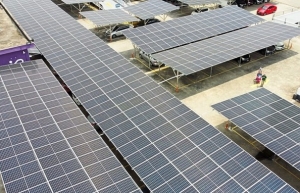 | Malaysians tend to use solar power in concern of power bills More Malaysian households and businesses are installing solar photovoltaic (PV) panels in a bid to bring down monthly electricity bills. |
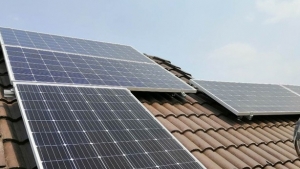 | Rooftop solar energy lacks legal foundation Businesses that intend to deploy rooftop solar energy for their own use must await a seamless link to the national energy grid. |
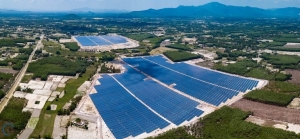 | GreenYellow acquires 49.5MWp solar farm of French IPP Qair in Vietnam GreenYellow Vietnam - a major player in the energy transition - recently acquired the Vietnamese subsidiary of Qair - French independent renewable energy producer refocusing on European, Brazilian, and African geographies - as well as its 70 per cent stake in Binh Dinh solar farm, a 49.5 MWp asset in operation in Binh Dinh province in Vietnam’s central coast. |
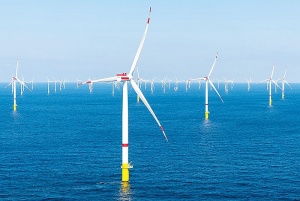 | Investors wait for wind power administration system Offshore wind offers a route to diversify the energy system in a cost-effective way, given the technology’s unmatched track record in driving down costs in the context of the major energy crisis facing the world today. |
What the stars mean:
★ Poor ★ ★ Promising ★★★ Good ★★★★ Very good ★★★★★ Exceptional
Related Contents
Latest News
More News
- Bac Ai Pumped Storage Hydropower Plant to enter peak construction phase (January 27, 2026 | 08:00)
- ASEAN could scale up sustainable aviation fuel by 2050 (January 24, 2026 | 10:19)
- 64,000 hectares of sea allocated for offshore wind surveys (January 22, 2026 | 20:23)
- EVN secures financing for Quang Trach II LNG power plant (January 17, 2026 | 15:55)
- PC1 teams up with DENZAI on regional wind projects (January 16, 2026 | 21:18)
- Innovation and ESG practices drive green transition in the digital era (January 16, 2026 | 16:51)
- Bac Ai hydropower works stay on track despite holiday period (January 16, 2026 | 16:19)
- Fugro extends MoU with PTSC G&S to support offshore wind growth (January 14, 2026 | 15:59)
- Pacifico Energy starts commercial operations at Sunpro Wind Farm in Mekong Delta (January 12, 2026 | 14:01)
- Honda launches electric two-wheeler, expands charging infrastructure (January 12, 2026 | 14:00)

 Tag:
Tag:


























 Mobile Version
Mobile Version